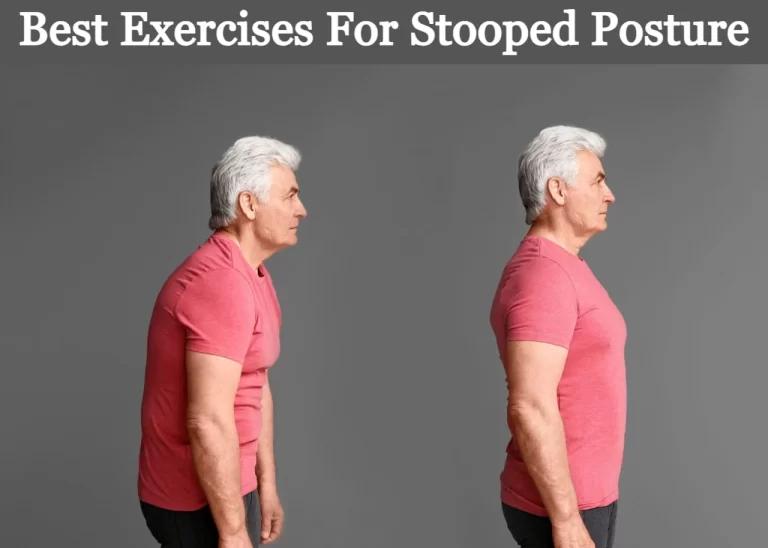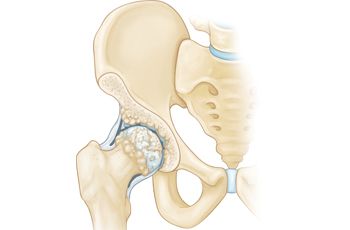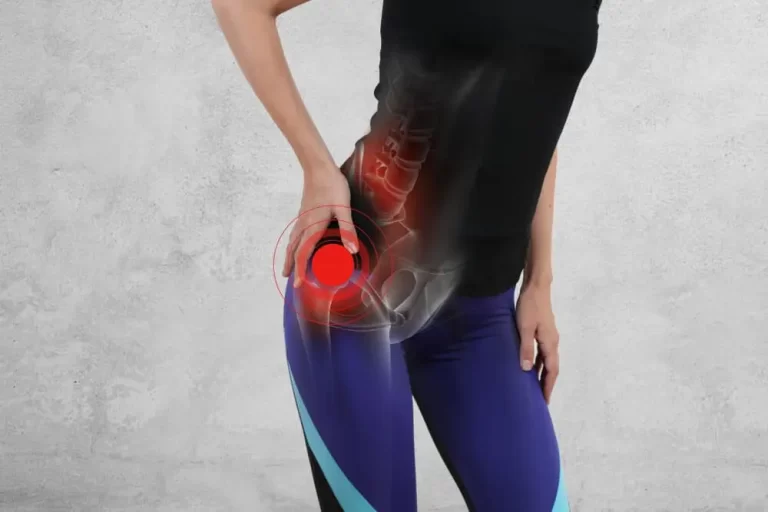Tension Headache
A tension headache is one of the most common types of headaches experienced by individuals. Characterized by a dull, persistent pain that often feels like a tight band around the head, tension headaches can range from mild to moderate in intensity.
A tension headache may feel like a tight ring around your forehead. Most people get episodic headaches that occur once or twice each month on average. However, tension headaches can become persistent.
A person suffering from a stress or tension headache may experience tightness or pressure, similar to a band around the head. The discomfort might extend to or from the neck. Cold compresses, relaxation methods, and other strategies may help alleviate or avoid it.
According to the World Health Organisation (WHO), more than 70% of the population has tension headaches. This article will discuss the symptoms, causes, and treatment options for tension headaches. It will also compare them to different forms of headaches, like migraines and sinus headaches.
What is a Tension Headache?
- A tension headache feels like a tight band is stretched around your head, putting pressure on your forehead and temples. Healthcare practitioners may refer to them as tension headaches.
- Tension headaches are commonly described as a pressing or tightening sensation on both sides of the head that is mild to moderate in severity. Headaches often develop gradually and intensify. Some individuals are sensitive to light and sound.
- People suffering from persistent tension-type headaches may occasionally experience nausea. Tension headaches create discomfort, although they are less serious than migraine headaches. Physical movement, such as walking or climbing stairs, does not enhance the pain, but physical or emotional stress may worsen it.
- According to the World Health Organisation, tension headaches are the most frequent primary headache problem, affecting more than 70% of the population. For 1-3% of individuals, these headaches are chronic, meaning they occur more than 15 days per month.
- Tension headaches typically develop in adolescence and impact women more than men. A variety of reasons can cause tension headaches, and it may be impossible to eliminate all potential triggers.
- Fortunately, there are some things you can do to avoid a stress headache. If home therapy does not work, healthcare practitioners may have drugs and other methods to relieve tension headache pain.
Causes of the Tension Headache
Primary headaches are often not caused by an underlying medical issue. Headaches are a medical illness, not a psychological issue.
- Doctors and medical experts aren’t sure what causes tension headaches. strain headaches may be caused by muscular strain in the head and neck, as well as bad posture.
- According to research, uncommon tension headaches might be produced by hyperexcitable peripheral afferent neurons. These are specialized neurons, or nerve cells, that transmit sensory information from the body’s pain receptors to the brain.
- If you get tension headaches, you may have problems with central pain processing. It’s also conceivable that you have a heightened sensitivity to pain.
- Genetic factors are considered to impact a person’s sensitivity to tension headaches.
Other causes of tension headaches include
- Neck strain while reading or using a cell phone or landline receiver.
- Long periods of looking at a computer screen or documents without taking breaks might cause eye strain.
- Temporomandibular joint disorder.
- Degenerative arthritis in the neck.
- Sleep problems include concerns such as sleep apnea and insomnia.
- Anxiety.
- Lack of Exercise
- Eye strain, squinting, and weariness.
- Missing meals
- Dehydration
- Frequent exposure to loud noises.
- Bright sunshine and bad posture.
- Certain smells, such as scented items
- Stress, worry, and depression may cause jaw clenching, loss of sleep, or lack of exercise, exacerbating the condition.
- Triggers might differ between people.
- Frequent episodic tension headaches can coexist with migraines. Excessive use of analgesics, or painkillers, can also contribute to recurrences of headaches.
- Chronic tension headaches can result from episodic headaches. The headache may recur daily or become chronic. Depression might also have to have a significant impact.
- Keeping a headache journal might help patients recognize and prevent headache causes and trends.
Types of the Tension Headache
Medical practitioners define tension headaches according to how frequently they occur. Condition different types include:
- Infrequent episodic tension headache: On average, the person will get this form of headache fewer than once per month. A headache might last as little as 30 minutes or as long as a week. Nausea and vomiting do not occur.
- Frequent episodic tension headache: The person will have at least ten headaches per month, lasting between one and fourteen days each, for three months or more. The headaches might last from 30 minutes to seven days. An individual may also be sensitive to light or sound.
- Chronic tension headache: A person has a headache for at least 15 days and three months or longer. The discomfort might continue for hours, or days, or be persistent. A person may also have light or sound sensitivity or mild nausea.
Symptoms of the Tension Headache
Although symptoms can differ, the majority of people experience:
- Constant, mild to moderate pressure, and pain when they have a tension headache, feeling as though their heads are being squeezed together on all sides.
- Tense or aching shoulder and neck muscles.
- Sound and light sensitivity.
- Sensitivity in the area of your scalp and forehead.
- Inability to concentrate.
- Irritability or exhaustion.
- Most of the time, the discomfort will be minor to moderate.
- No vomiting or nausea combined with the listed symptoms.
These signs could appear gradually. They could last for thirty minutes, but occasionally they can last up to a week. Some sufferers with tension headaches may feel as though they are constantly experiencing pressure and agony in their heads.
Complications of the Tension Headache
Your quality of life may be impacted by persistent tension headaches that linger for several weeks or months.
For instance, you could find it difficult to concentrate on your work or family obligations if you have a persistent tension headache as you’re constantly under pressure.
Diagnosis of the Tension Headache
Your medical history and symptoms may be questioned by healthcare professionals, who might inquire about things like
- How frequently do you experience symptoms?
- Are there specific periods of the day when your symptoms seem worse?
- Do certain activities make your problems worse?
- Do over-the-counter analgesics improve your condition?
To look for underlying problems, they might perform brain magnetic resonance imaging (MRI) and computed tomography (CT) scans.
Treatment of the Tension Headache
- To begin with, try increasing your water intake. It’s possible that you’re dehydrated and should drink more water.
- Insufficient sleep and hunger are two typical causes of tension headaches. When you have a stress headache, ask yourself when you last had a meal and rested. If your body requires it, having food or napping can help you feel better.
- If none of those tactics work, you can take over-the-counter (OTC) pain drugs, such as ibuprofen or aspirin, to relieve a tension headache. These, however, have to be utilized rarely.
- Overuse or rebound headaches might result from taking over-the-counter drugs. These headaches happen when you are so dependent on a medicine that you feel discomfort when it wears off.
- OTC medications are frequently insufficient to manage persistent tension headaches. A healthcare provider may prescribe medicine, such as tricyclic antidepressants.
- Medications include beta-blockers, divalproex sodium, indomethacin, ketorolac (pain treatment), and naproxen.
- If pain medications are ineffective, they may prescribe a muscle relaxant. This is a medicine that helps to prevent muscular spasms.
- A medical professional may also prescribe an antidepressant, such as a selective serotonin reuptake inhibitor (SSRI). SSRIs can regulate serotonin levels in your brain and help you cope with stress.
They may also suggest different approaches, such as:
Stress management classes: These classes can educate you on how to deal with stress and reduce anxiety.
Biofeedback: This is a relaxing method that teaches you how to handle pain and tension.
Cognitive behavior treatment (CBT): CBT is a type of talk therapy that teaches you how to recognize circumstances that produce stress, anxiety, and tension.
Acupuncture: This is an alternative therapy that involves inserting small needles into particular parts of your body to relieve stress and tension.
Home and alternative cures.
The following may also help relieve your tension headache:
- Some people find that home remedies are effective in relieving headaches.
- To alleviate headaches, consider limiting coffee intake, using an ice pack to the affected area, and practicing relaxation techniques.
- Improve your posture. Take regular computer breaks to avoid eye strain.
- Use a heating pad or ice pack on your head for 5 to 10 minutes multiple times each day.
- Take a hot bath or shower to relieve tension in your muscles.
- Relaxation training, relaxing head massage, or therapeutic yoga. Aromatherapy uses essential oils, such as peppermint oil, and can be used with acupuncture.
- Stress management skills.
- Biofeedback and counseling.
- Nutraceuticals or supplements include riboflavin (vitamin B2) and magnesium.
Tension Headache vs Migraine.
In circumstances of severe discomfort, you may confuse a tension headache with a migraine.
- This form of headache generates throbbing pain on one or both sides of the head. Migraines range from moderate to severe in severity, whereas tension headaches are mild to moderate.
- Physical exercise can aggravate migraines, while tension headaches cannot.
- Tension headaches do not exhibit all of the symptoms of migraine episodes, such as nausea and vomiting
- In rare situations, your tension headache might make you sensitive to light and loud noises, comparable to a migraine episode.
When to consult your doctor?
Tension headaches are not life-threatening, but they might indicate a significant medical problem or that an existing one is worsening. Consult your doctor if you have
- Headache and a stiff neck.
- When you chew, you may feel pain or soreness in your jaw or near your temple, similar to when you comb your hair.
- A persistent fever of more than 103 degrees Fahrenheit.
- Headaches that feel unusual or occur more frequently than normal, and you are 50 years or older.
- A headache that only appears while you are lying flat or standing up. This is a positional headache.
- If you have cancer or an autoimmune condition, you may discover that you are experiencing more severe headaches.
- Numbness or weakness.
Preventive Tips for the Tension Headache
Maintaining a healthy lifestyle can help prevent tension headaches.
Tips include :
- Obtaining adequate sleep.
- Avoiding drink.
- Managing stress.
- Caffeine consumption should be reduced.
- Maintaining appropriate posture while sitting, standing, and performing other daily tasks.
- To maintain good posture when working at a desk, take regular breaks and extend your neck and shoulders.
- Exercising may also improve sleep habits.
- Having frequent eye exams and wearing the appropriate eyewear.
- Drink plenty of fluids, especially water, and wear sunglasses on bright days.
- Eating regular meals while avoiding foods that may cause a headache
- Reduce the usage of fragrant items.
- Monitoring for the adverse effects of any medicines
Summary
Tension headaches develop in your neck and shoulder muscles when your body copes with stress and other challenges. Then you get a dull aching in your forehead as if someone had your head in their hands. If this describes your circumstances, you may be experiencing a tension headache. They might occur seldom or regularly.
In any case, if you are experiencing tension headache symptoms, consult your doctor. They will ask questions to determine why you are experiencing these symptoms. If stress is the cause, your physician will also suggest lifestyle adjustments and other ways to minimize stress and avoid tension headaches. In some circumstances, healthcare practitioners may suggest prescription medicine or physical treatment.
FAQs
What does a stress headache feel like?
Symptoms of tension headaches include Dull, painful headaches. The feeling of tightness or pressure on the forehead, sides, or rear of the head. Tenderness in the scalp, neck, and shoulder muscles.
Can stress create headaches?
It is not a coincidence that headaches are more common when you are anxious. Stress is a major cause of tension headaches and migraines. It may also trigger or worsen other forms of headaches. Stress is a frequent headache cause in children and young adults.
What drink is effective for tension headaches?
Green smoothies, fruit-infused water, and milk are all good drinks that assist with headaches and migraines
How long do stress headaches last?
They seem like a persistent discomfort on both sides of the head as if a tight band is wrapped around it. Tension headaches are usually not severe enough to interfere with daily activities. They often last 30 minutes to several hours but may persist for days
What is the difference between a tension headache and a migraine?
Tension headaches cause dull discomfort on both sides of the head. You may have tension or pressure in your brain. Migraines, on the other hand, appear on only one side or worsen on that side. They are characterized by intense throbbing or pulsating pain.
What are the elements that increase the risk of tension headaches?
Stress, a lack of sleep, and failure to eat on time are among the most common headache triggers identified by migraine patients and tension headache sufferers.
References
- Higuera, V. (2023, March 8). Tension headaches. Healthline. https://www.healthline.com/health/tension-headache
- Professional, C. C. M. (n.d.-i). Tension headaches. Cleveland Clinic. https://my.clevelandclinic.org/health/diseases/8257-tension-headaches
- Cowen, M. (2023, April 27). What does a tension headache feel like, and how to relieve it? https://www.medicalnewstoday.com/articles/313020
- Tension headache – Diagnosis and treatment – Mayo Clinic. (2023, September 26). https://www.mayoclinic.org/diseases-conditions/tension-headache/diagnosis-treatment/drc-20353982
- Facn, D. C. T. D. M. (2023, March 23). Tension headache symptoms, causes, and treatment. MedicineNet. https://www.medicinenet.com/tension_headache/article.htm








One Comment